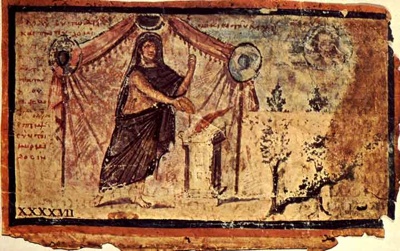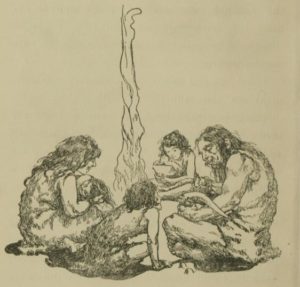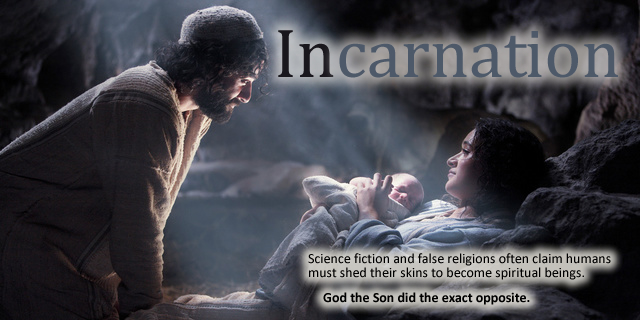Less Screaming, More Swashbuckling
 Screaming is no way to raise children, or for that matter anyone else. I refer not to angry screaming (which is bad enough) but panicked screaming. It betrays the possibility that screamers minimize glorification of God, preferring to emphasize faithless reaction to fears.
Screaming is no way to raise children, or for that matter anyone else. I refer not to angry screaming (which is bad enough) but panicked screaming. It betrays the possibility that screamers minimize glorification of God, preferring to emphasize faithless reaction to fears.
People overreact based even on legitimate fears. Including parents and ministries. Now, though I dislike diagnosing problems without offering solutions, I’m unsure how to fix this.
To set up my example, I‚Äôll ‚Äúout‚ÄĚ myself: I accept six-day creation and a global flood. If you don‚Äôt, I‚Äôll understand; I don‚Äôt boycott or cry ‚Äúcompromiser.‚ÄĚ Instead I would prefer hearing you out. For example, if you accept a ‚Äúday age‚ÄĚ or ‚Äúgap theory‚ÄĚ belief, then I would try simply to ask, ‚ÄúWhy do you feel you need to believe that?‚ÄĚ Oddly enough, I‚Äôve found that actually being intimidated by science or scientists and not knowing their limits may lead to people who do believe Scripture also feeling they must accept some aspects of evolution.
Anyway, as one of Those, I also enjoy the work of Answers in Genesis. That‚Äôs the (in)famous Christian group that promotes ‚Äúdefending the Bible from the very first verse,‚ÄĚ now from their southern-Ohio base of operations. For a few years that has included their fantastic Creation Museum, an attraction that gets little credit for the fact that it‚Äôs creatively brilliant.

I love this place. The planetarium alone is creative and even ‚Äúspeculative.‚ÄĚ Call me and I‚Äôll take you there.
(Yes, skilled Christians have done Science and Art and all that, but only get laughed at over their pictures of dinosaurs. Remember that the next time you assume that if only Christians could be more creative and enjoy science and natural wonders, people would love us.)
All that praise, and now I must criticize. A little.
Why? Because I keep seeing materials such as this one by AiG founder Ken Ham:
As we embark on a new year of ministry that reaches around the world, we at AiG will be doing our best to help rescue kids (and adults) from this present evil age by directing them to the Savior and showing them that His Word can be trusted.
Now if I were a Hip Cool Christian Blogger, I‚Äôd now be laughing at Ken Ham. No, that is not my point. If you argue with that post, I may argue with you ‚ÄĒ in a Christlike way, I hope.
No, the fact is, I agree with everything Ham writes about here. Denying that They really are coming after the children is absurd. Of course They are coming after the children. Everyone comes after the children. And based on the Bible, parents should educate their children in the Word (and if they can, as many other knowledge fields as possible). Far more vitally, Christians even apart from parenting should practice discernment and lie-rejection. At Speculative Faith, we stress this practice particularly about fiction, but also in all areas.
Rather, what I dislike is this escalating ‚Äúthey‚Äôre coming after your kids!‚ÄĚ marketing.
Ask yourself: what brought you into a passion for whatever Christian cause or ministry you enjoy? Your local church (this comes first), a denomination, a relief organization, a group of cult-busters or apologetics artists, a website, or any other parachurch outfit? I’m guessing you were not drawn aboard primarily because the group hollered at you about Horrible Dangers. Rather, you were captivated by the call to missions work. A founder’s personality. Christ’s clear influence in that organization. Your own Spirit-given desire to glorify Him.
For me with AiG, I was captivated by what I can only describe as swashbuckling. Disagree with beliefs if you wish, but when I heard Ham or others speak, I was simply having a blast. I was enjoying the truth and the form. Ham wasn’t a screaming, panicking hand-waver. He was a swashbuckler. He skewered anti-God absurdities. And he laughed while doing it.
That‚Äôs far better than near-constantly emphasizing ‚Äúthey‚Äôre coming after your kids!‚ÄĚ.
 So recently I posted this to AiG’s Facebook wall:
So recently I posted this to AiG’s Facebook wall:
My second [Facebook] post of the new year is a plea for Answers in Genesis to reconsider some of its ‚Äúthey’re coming for our children!‚ÄĚ materials. First, yes, They are coming for our children. But does that support appeals such as the recent reminder that professors are trying to teach ‚Äúyour children‚ÄĚ untruths? Last I checked, if your ‚Äúchild‚ÄĚ is being taught by professors, that ‚Äúchild‚ÄĚ is not a child ‚ÄĒ namely, he or she is an adult. Yes, parents must teach their children, and optimally continue providing wisdom (though more similar to of a brother/sister than parent) when their children are grown. But any ‚Äúprotection‚ÄĚ of people of any age from false teaching is secondary to the main goal: to glorify God and love Him and His truth by discerning and rejecting false teaching.
AiG does great work, but they should reject the fear-based, reactionary approach that itself frightens people as children, and makes them sneer as adults. Instead they and their materials should stress the glories, majesty, and wonder of our God of truth.
Yesterday brought an official reply, which surprised me. (Most organizations’ staffers or volunteers are rightly too busy to engage every social-network critic.) But I’m not sure they get my reasons. Neither did the other person, who merely encouraged me to read Genesis.
How to fix this? I don‚Äôt know. So far I‚Äôve only designed this ‚Äúmeme.‚ÄĚ You may think of better solutions. If not, you‚Äôd best hurry. Fear-based Christians are coming after your children.











































 Of course, as a friend of mine
Of course, as a friend of mine  One publisher summarizes its mission to provide ‚Äúgood and wholesome reading‚ÄĚ to endorse ‚Äúcharacter traits [that] children assimilate during their formative years [which] are the foundation from which a life of faith in God is built,‚ÄĚ and offering ‚Äúinspiring role models‚ÄĚ who consistently demonstrate ‚Äúperseverance, courage, hope, loyalty, humility.‚ÄĚ
One publisher summarizes its mission to provide ‚Äúgood and wholesome reading‚ÄĚ to endorse ‚Äúcharacter traits [that] children assimilate during their formative years [which] are the foundation from which a life of faith in God is built,‚ÄĚ and offering ‚Äúinspiring role models‚ÄĚ who consistently demonstrate ‚Äúperseverance, courage, hope, loyalty, humility.‚ÄĚ












 … But also with Biblically informed imaginations. We accept God’s Word, then ask, what if?
… But also with Biblically informed imaginations. We accept God’s Word, then ask, what if?


